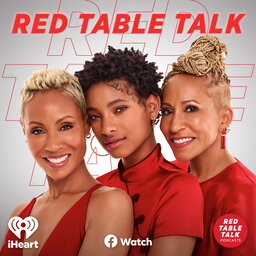Joy After Abuse (Jennette McCurdy recap)
Tracy T. Rowe and Cara Pressley are recapping the bombshell Red Table Talk Jennette McCurdy interview. Joy Havens joins the virtual red table to break down what it’s like to live in an environment like Jennette experienced. Joy also experienced abuse by her mother and father and developed an eating disorder because of her abuse. Plus, licensed marriage and family therapist Kati Morton joins the table to share tips on how to navigate tricky parent-child relationships.
Hosts Information:
Cara Pressley
@thecareercheerleader Cara’s Instagram
@TheCareerCheerleader Cara’s Facebook
@the1cheering4U Cara’s Twitter
@FeelinSuccessful Cara’s TikTok
Cara’s Website
Tracy T. Rowe
@tracytrowe Tracy’s Instagram
@troweandco Tracy’s Facebook
@tracytrowe Tracy’s Twitter
@tracytrowe Tracy’s TikTok
Tracy’s Website
----
#LRTT
Listening and loving the show? Please be sure to rate and review.
Have a question you want us to discuss on Let’s Red Table That? Email us at: letsredtablethat@redtabletalk.com
-----
LET’S RED TABLE THAT is produced by Red Table Talk Podcasts. EXECUTIVE PRODUCERS Jada Pinkett Smith, Fallon Jethroe and Ellen Rakieten. PRODUCER Kyla Carneiro. ASSOCIATE PRODUCER Yolanda Chow. EDITORS AND AUDIO MIXERS Calvin Bailiff and Devin Donaghy. MUSIC from Epidemic Sound. LET’S RED TABLE THAT is in partnership with iHeartRadio.
 Red Table Talk
Red Table Talk


